14 start with E start with E
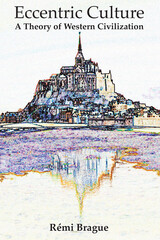
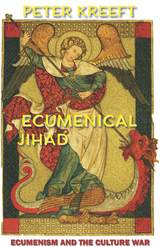
Aware of the deep theological differences of these monotheistic faiths, Kreeft calls for a moratorium on our polemics against one another so that we can form an alliance to fight together to save Western civilization.
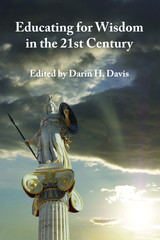
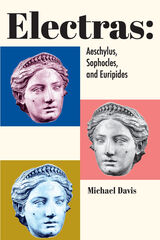
Davis accomplishes much more than an exegetical bridge as he connects us with ancient memory and wisdom. "When we cannot resist the temptation to recoil morally from their terminology, we risk the tragedy of losing their profound thoughts about our humanity––their philosophical anthropology." Davis has remarkably made of a niche study a stunning source material for more universal questions. This is a book that is as timely as it is ageless.
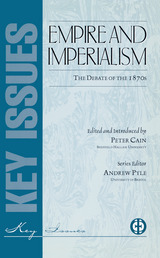

One of the classics of modern spirituality, Encounters with Silence is one of Karl Rahner’s most lucid and powerful books. A book of meditations about man’s relation with God, it is not a work of dry theology, but rather a book of prayerful reflections on love, knowledge, and faith, obedience, everyday routines, life with our friends and neighbors, our work and vocation, and human goodness. The immense success of this moving work is a tribute to its practicality and the ability of the great theologian to speak simply and yet profoundly to ordinary men and women seeking an inspiring guide to the inner life, one that never forsakes the world of reality. The book is cast in the form of a dialogue with God that moves from humble but concerned inquiry to joyful contemplation.
“You will come again because the fact that you have already come must continue to be revealed ever more clearly. It must become progressively manifest to the world that the heart of all things is already transformed, because you have taken them all to your heart. . . . The false appearance of our world, the shabby pretense that it has not been liberated . . . must be more and more thoroughly rooted out and destroyed. . . . And your coming is neither past nor future, but the present, which has only to reach its fulfillment. Now it is still the one single hour of your advent.” (from the book)
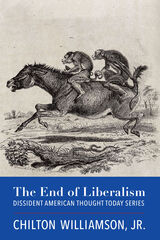
Williamson observes that this liberalism to nevertheless be collapsing, given the obvious opposition to the idea that it is essential to modernity. Liberalism is ironically a kind of unyielding control, "a relativist persuasion that discourages and resists fixed beliefs and certainties and the idea of truth itself." Williamson offers commentary on the present state of liberal ideas and their crimes against better judgment, and vindicates conservatism from being labeled reactionary. Liberalism is exposed as a faith we cannot accept, for it contains nothing to be believed and what it says about the order of things is pure fiction.

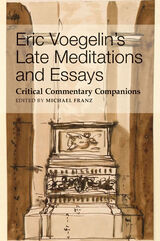
Voegelin’s books gave rise to a vast secondary literature that continues to grow, yet the exceptionally impactful late essays and meditative works have never received the scholarly commentaries they deserve because they were published originally as journal articles or chapters in edited collections. This volume remedies that shortcoming with 14 critical analyses that elucidate the late essays while also addressing their implications for the entirety of Voegelin’s thought. The commentaries will prove invaluable to students and scholars in political science, philosophy, history, theology, and other disciplines, serving as a companion piece to the singularly important Vol. 12 of Voegelin’s Collected Works, Published Essays 1966–1985.

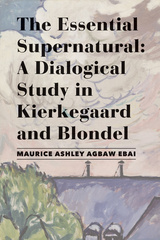
Like these philosophers who have preceded him, Agbaw-Ebai exhorts us to never allow the sense of our relation to the supernatural as a settled matter. The philosophy of religion we have inherited does not protect us from having to confront our own subjectivity with autonomy: to be God without God and against God, or to be God with and through God.
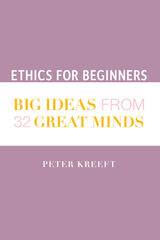
Most ethics textbooks are anthologies of articles by contemporary philosophers, or a whole book by one contemporary philosopher, about ethical puzzles to be solved by logical analysis. This is good mental exercise but it will not change your life, and you will not remember it ten years from now. You will not remember a hundred bright little ideas, you will remember only a few Big Ideas, the ones that changed your life. This book is about 52 of them..
And it is by 32 great philosophers. They are all dead. (Philosophers die, but philosophy does not; it buries all its undertakers.) Living philosophers who write ethics textbooks are usually very bright, but they do not include any name we know will live for centuries. Why apprentice yourself to second rate scribblers like me when you can apprentice yourself to the greatest minds in history? Why not learn from Socrates, Buddha, Confucius, Plato, Aristotle, Kant, Kierkegaard, and Nietzsche? Why prefer little minds to big ones?
They disagree with each other, to be sure, but all of them will help you, not least those who contradict you and challenge you, and stretch you by forcing you to reply to them, and fight with them. I am appalled by the fact that 90% of the best philosophy students at the best universities, which say they cultivate "diversity," have exactly the same politically correct opinions, whether of the Left or the Right.
When you were a child your mother probably reminded you before you went out not to forget something like your lunch box or your umbrella. Ethics today is usually treated that way: as an afterthought: check with an ethicist before doing the really important things like business or law or medicine or diplomacy. But ethics is not a P.S. to life. It is about the most fundamental things in life: values, good and evil. Socrates said that a good person does not worry much about little things like whether he lives or dies, but only about big things like whether he is a good person or a bad one.

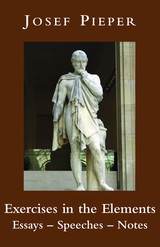
A fundamental issue for Pieper is “createdness.” He sees this as the fundamental truth of our being – all being – and the fundamental virtue we can practise is the striving to live according to our perception of real truth in any given situation.
The strength and attraction of Pieper’s writing is its direct and intuitive character which is independent of abstract systematization. He advocates staying in touch with the “real” as we experience it deep within ourselves. Openness to the totality of being – in no matter what context being reveals itself – and the affirmation of all that is founded in this totality are central pillars of all his thinking. Given the “simplicity” of this stance, it is no surprise that much of it is communicated – and successfully – through his gift for illustration by anecdote. Like Plato, this philosopher is a story-teller and, like him, very readable.
READERS
Browse our collection.
PUBLISHERS
See BiblioVault's publisher services.
STUDENT SERVICES
Files for college accessibility offices.
UChicago Accessibility Resources
home | accessibility | search | about | contact us
BiblioVault ® 2001 - 2024
The University of Chicago Press









